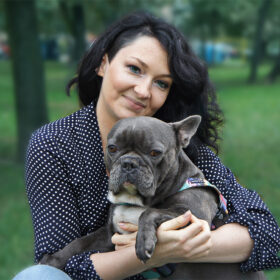Join us for another webinar on the topic of Green Commemorations.
![]() How to deal with places with difficult heritage? How can green spaces be included in the commemoration of the Holocaust? How can we create open, respectful spaces that enable a symbolic dialogue between victims and survivors as well as researchers, activists, artists and local communities? How can we consciously utilise the potential of non-human actors of remembrance in times of the ongoing climate crisis?
How to deal with places with difficult heritage? How can green spaces be included in the commemoration of the Holocaust? How can we create open, respectful spaces that enable a symbolic dialogue between victims and survivors as well as researchers, activists, artists and local communities? How can we consciously utilise the potential of non-human actors of remembrance in times of the ongoing climate crisis?
We will be looking for answers to these and other questions during the webinar “Green Commemorations. Towards New Strategies of Public Commemorations”, which will focus on concrete examples of interdisciplinary activities and projects from different parts of Poland: Zielona Gwarna (Wrocław), Green Commemorations (Pikule, Szukowo), Esther’s Willow (Chrzanów), Medicinal Plants of Płaszów and Still Standing (Kraków) and The Roots of the Uprising (Warsaw).
![]() The pretext for the meeting is the year that has passed since the publication of our e-book Green Commemorations. Towards New Strategies of Public Commemorations. In the discussion, we will consider together what useful tools – theoretical, but also practical – can be provided by the environmental history of the Holocaust, which has been developing since the 1990s and is becoming increasingly important worldwide and in Poland. Based on the experience gained so far, we will also point out possible pitfalls, the most common dilemmas and problems in the implementation of this type of initiative.
The pretext for the meeting is the year that has passed since the publication of our e-book Green Commemorations. Towards New Strategies of Public Commemorations. In the discussion, we will consider together what useful tools – theoretical, but also practical – can be provided by the environmental history of the Holocaust, which has been developing since the 1990s and is becoming increasingly important worldwide and in Poland. Based on the experience gained so far, we will also point out possible pitfalls, the most common dilemmas and problems in the implementation of this type of initiative.
The event is carried out in cooperation with the Research Center for Memory Cultures (JU) and the Galicia Jewish Museum as part of the "NeDiPa: Negotiating Difficult Pasts" project, which we carry out together with the Zapomniane Foundation and the Urban Memory Foundation, thanks to the support of the European Union under the Citizens, Equality, Rights and Values (CERV) program.





